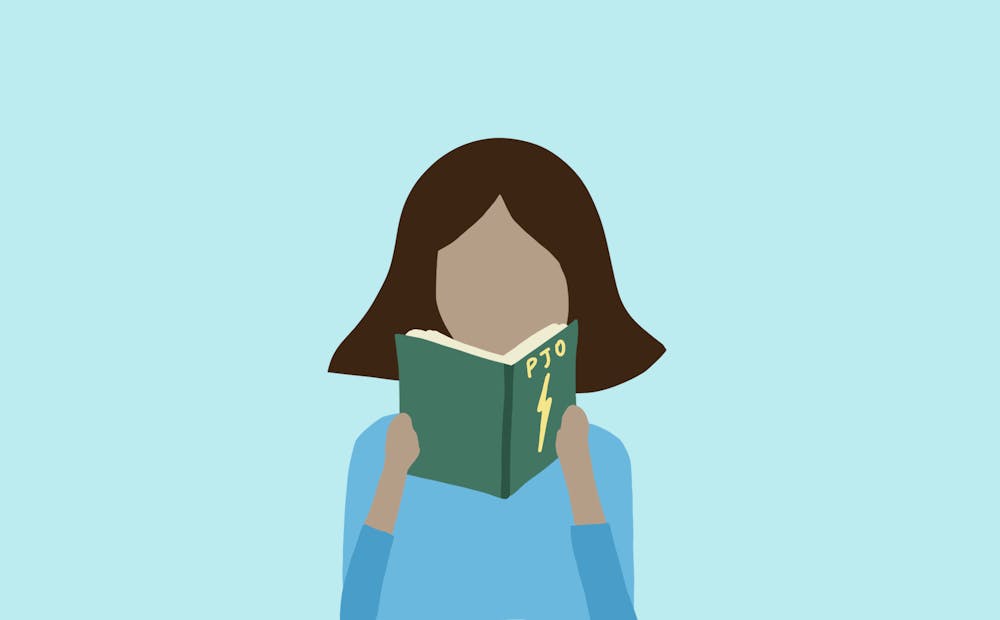For my family, “dad” and “father” do not mean the same thing. “Dad” is a word of love, trust, and presence. “Father” is a word of blood relation, biology, and genetics. This distinction was made incredibly clear to me at 10 years old, when I found out my dad wasn’t really my father.
After learning about the nature of my past, the word “father” became a word that was only whispered around the house. I didn’t want to remind my mom of her own abandonment. I didn’t want to remind my dad of my genetic reality. I didn’t want to remind myself of the fact that I was abandoned by somebody who I didn’t even know. “Father” became associated with a faceless and nameless being who personified my realized fears.
With my father leaving when my mom was pregnant, I’ve lived with the idea that my existence was the reason that he left. Despite it being almost irrational, this flicker of thought sat in the darkest corners of my mind. From my stature to my lips, I was reminded of my father’s abandonment every time I looked in the mirror. Even though I didn’t know what he actually looked like, I saw him in every part of me.
Ultimately, I found comfort in fiction: Rick Riordan’s Percy Jackson and the Olympians. With the demigods, the half-human children of the Greek gods, each character had their own share of abandonment issues and nontraditional parental relationships. When I heard about how Percy felt abandoned by his father “only a few hundred times a day” and how Luke wanted “Olympus destroyed” as a result of his godly father’s departure, this encapsulated the spectrum of emotion I felt whenever the word “father” was spoken. As a person who’s never been exactly “in touch” with their feelings, seeing them put into words was almost cathartic.
In a way, Percy Jackson first helped me to romanticize my abandonment. It allowed me to see it through rose-colored glasses and frame it with naive nostalgia for a nonexistent past. I wanted my abandonment to be the tragic backstory of my hero’s journey. Maybe my father couldn’t see me for some other reason, just like how Poseidon couldn’t see Percy without risking his safety. Maybe my father was waiting for me, eager to claim me as his own. Maybe one day, I would find him and it would be the start of some grandiose coming-of-age story. He would cheer me up with dad jokes and help me study for tests. He would try to teach me life lessons by telling long-winded stories from his past and awkwardly try to comfort me when things went wrong. Just like how Poseidon sent his godly help to Percy, I wanted him to fight (metaphorical) sea monsters with me. These daydreams began to eat me up and consume my thoughts. The idea of meeting my father for the first time echoed throughout my mind, growing louder and louder as time passed.
Yet deep down, I knew he couldn’t care less about my existence. No matter how much I tried to repress or ignore it, this thought would always resurface. If he cared, he would’ve reached out. He would’ve paid child support. He would’ve done something.
I slowly began to realize that Percy Jackson was merely fiction.
However, by reading Percy Jackson for the fiction that it was, it began to help me in a way that did not include creating imaginary worlds where my biological father wanted me. Instead of focusing on Percy’s relationship with Poseidon, I began to focus on Percy’s relationship with everybody else. Through this, I realized that I was more than my abandonment. Like Percy, I could fight (metaphorical) sea monsters without my biological father. I could be my own source of comfort when things went wrong. I had the ability to go on epic journeys and quests regardless of what constituted my genetic makeup. From academic anxieties to broken friendships, I knew I was capable of navigating my own life with the help of the people around me. I didn’t need imagined guidance from my absent father to face my struggles. What I was missing from my life did not define me. Instead, I was defined by myself and the people who remained.
My mom and dad, unlike my father, consciously chose to stay. They loved me as much and as certainly as Sally Jackson and Paul Blofis loved Percy. I knew that they would rush into battle against the Greek gods if my life were in danger. I knew that they would fight (metaphorical) sea monsters with me without question. Unlike my biological father, they were not faceless figures that I had to pine after for recognition—they were my family.
The idea that my existence was the reason for my abandonment lurks in my mind to this very day. But Percy Jackson has taught me that my abandonment is the most insignificant thing about me. I don’t need validation from a stranger who happens to be my biological father in order to forge my own identity. I can fight (metaphorical) sea monsters without him.







